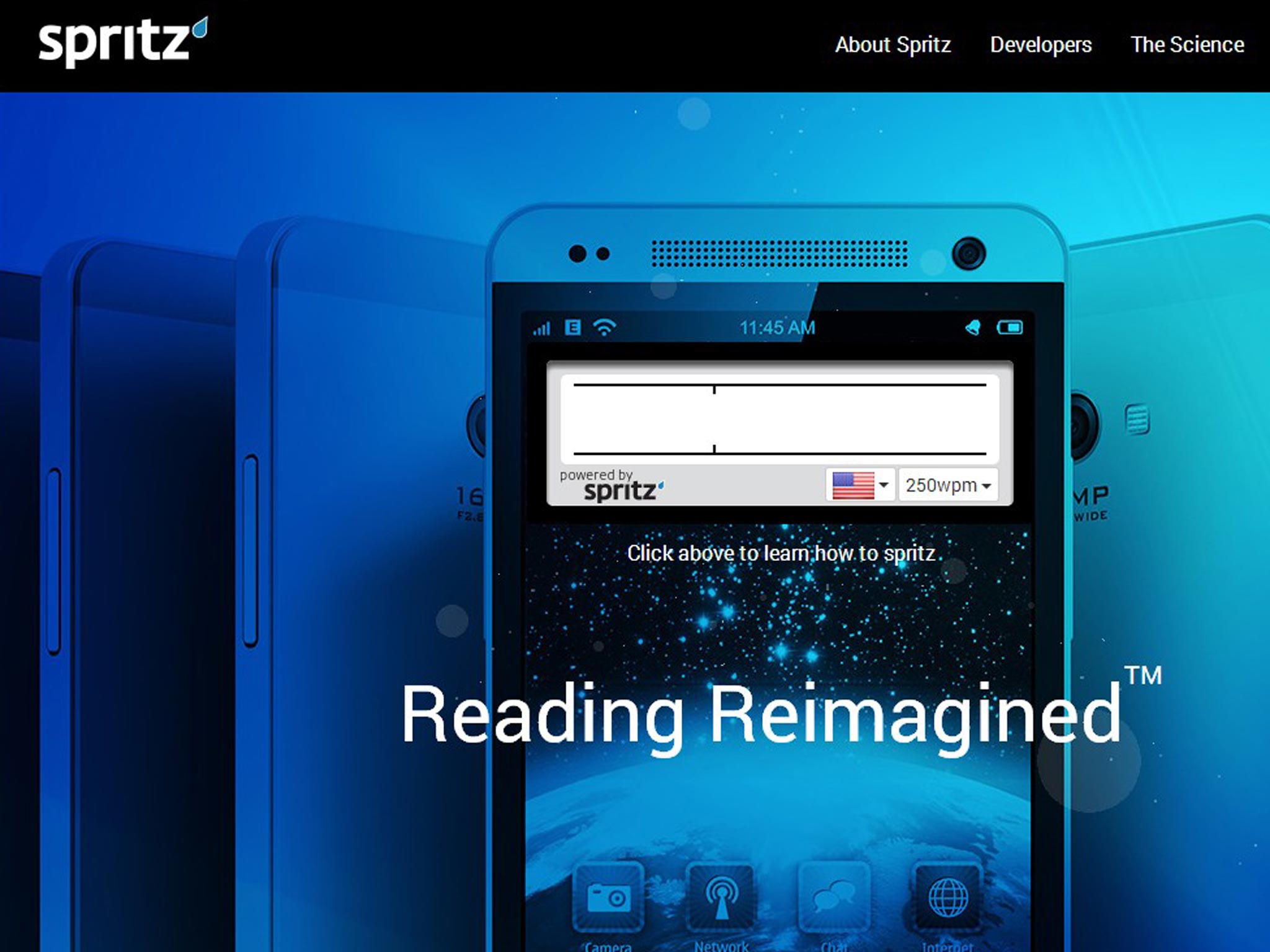Spritz promises to boost reading speeds to a breakneck 500 words a minute - will it enhance our enjoyment of literature?

When I heard this week that reading would "never be the same again", I was worried. But I'd forgotten that there are two kinds of "it'll never be the same again".
A structural engineer might tell you that your kitchen floor will "never be the same again" while solemnly pointing out catastrophic subsidence, while someone selling cleaning products might say the same thing with an enthusiastic grin. And sure enough, this new development in reading is billed as a good thing.
Spritz, a new way of displaying text on electronic devices, aims to boost our reading speeds from about 220 words per minute to 500 and beyond by showing us just one rapidly changing word at a time. The prospect of implementing this efficiency measure made me feel slightly giddy, so I went to spritzinc.com to try it.
Spritz is by no means the first project designed to speed up our reading; there are already a clutch of apps for iPhone and Android, and systems such as RSVP (Rapid Serial Visual Presentation) have been around since the 1970s. But Spritz's primary aim, and the key to its success, is to stop our eyes from wandering about unnecessarily. Having established that words have an optimal recognition point, or ORP, Spritz uses proprietary technology to keep that ORP in the same place, marked by a red letter and a vertical line as the words change. "Relax," says the tutorial. "Look at the red character, and trust that your brain retains the whole word."
It's possible that you could get used to this method of reading with some practice, but initially it feels like an eye test being performed by a hyperactive optician, with words being hosed into your face as you wonder how much longer it's going to take. Look away for a second to check your watch or attend to an itch behind your right knee, and you'll miss eight words which might have been important. As a method of absorbing information quickly, it's a genuine eye-opener (blinking, incidentally, is compatible with Spritz) and maybe it's a valiant way of battling against our rapidly depleting attention spans. But it certainly doesn't feel relaxing. "Reading is inherently time consuming," says the website – to which I thought, well, so is a two-week holiday in the Seychelles, but I don't have the urge to cram that into four frenetic hours. It's enough to give the founders of the Slow Movement an aneurysm.
The perpetually imminent craze for wearable technology will, of course, demand that more text be shoehorned into an ever smaller space; those of us who yearn to stand at a bus stop reading Moby Dick on our watches will obviously need to be catered for. But, for most people, the act of reading is not an onerous one. It's a leisure activity, and however passionately the founders of Spritz may point out that excessive eye movement is a terrible mis-allocation of our time, it's not an issue that has had people constructing e-petitions or marching on Parliament Square. According to Spritz's statistics, 20 per cent of our reading time is spent processing content and 80 per cent moving our eyes – but I'd challenge these numbers; I'd say that about 40 per cent is spent looking out of the window, or having a little think, and that's just fine.
The website also poses the question: "What could you do if you doubled your reading speed?" But, when I ponder that, I think of a large pile of unprocessed accounts and my dirty kitchen floor. So just let me read. It's a lovely thing to do, after all.
Join our commenting forum
Join thought-provoking conversations, follow other Independent readers and see their replies
Comments
Bookmark popover
Removed from bookmarks